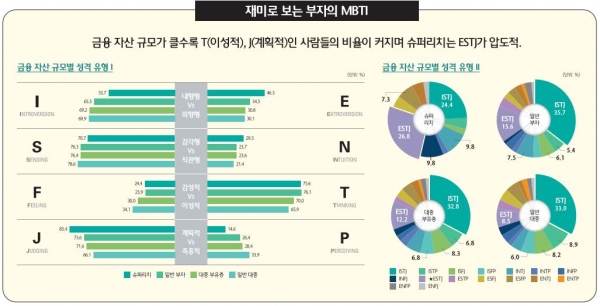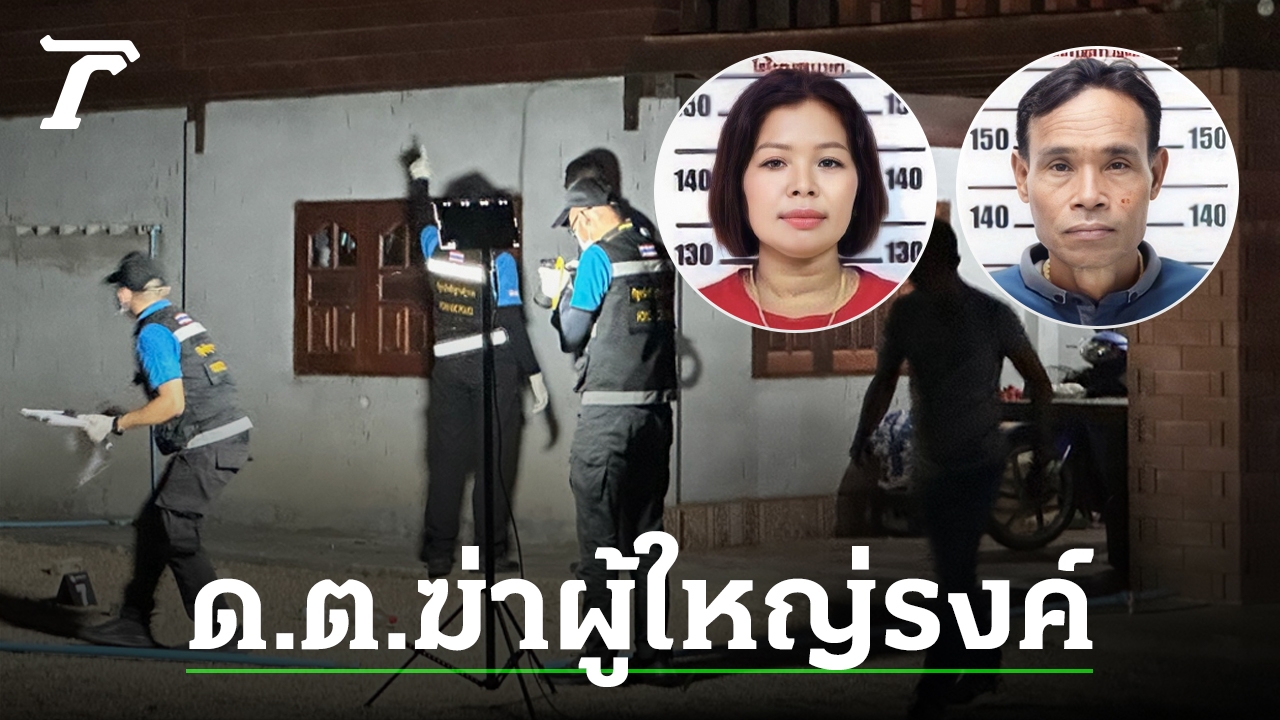– Hana Financial Management Institute ‘2023 Korea Wealth Report’… Entrepreneurs, many professionals in the medical and legal fields
– Last year, the share of cash and deposits in financial assets more than doubled
– MBTI of rich people, the higher the number of financial assets, the higher the ratio of T (rational) and J (planned)
[인사이드비나=오태근 기자] Korea’s super-rich (ultra high net worth) are corporate managers and medical and legal professionals, with an average asset of 32.3 billion won. These super-rich people chose real estate the most as their priority investment target in the future, showing the greatest interest in real estate despite the downturn in the real estate market and falling prices.
Hana Bank (President Lee Seung-yeol) and Hana Institute of Finance Management (Director Jeong Joong-ho) defined the super-rich as those with financial assets of 10 billion won or more or total assets of 30 billion won or more, and published the ‘2023 Korean Wealth Report’, which analyzed their financial behavior. Report) was published on the 9th.
◆ Ratio of real estate and financial assets is 5:5… Average annual income 1.2 billion
The average total assets of the super rich is 32.3 billion won. The ratio of real estate and financial assets is 5:5, and 60% of financial assets are held in cash and deposits. As for the occupation, corporate managers accounted for the most with 29%, followed by medical and legal professions with 20%.
The average annual income of the super-rich is about 1.2 billion won. Among them, the share of property income was the largest at 39% (approximately 500 million won). The share of earned income (37%) for the ordinary rich is higher than property income (22%), showing a difference from the super-rich. The super-rich spent more than half of their monthly income on savings (57%) and the rest on consumption (37%) and loan repayment (6%). Their ability to save was much higher than that of the general wealthy, whose consumption accounted for 59% and savings accounted for 38%.

◆ Interest in money from a young age
As a result of the survey on when they became interested in money, 44% of respondents said that they became interested ‘naturally due to parental education or family atmosphere’.
43% of the general wealthy (financial assets of 1 billion won or more) and mass wealthy people (financial assets of 100 million won or more to less than 1 billion won) said that they became interested in ‘because of a sense of responsibility for their family, such as childbirth or parental support’, respectively. It was the highest at 55%, showing a difference from the super-rich, who naturally encountered ‘wealth’ from a young age.
◆ I have many works of art… Expected return on investment of 5-10% this year
The biggest feature of the super-rich financial asset portfolio last year was the increase in the proportion of cash and deposits. It is interpreted that the preference for deposits increased due to the effect of the interest rate hike, and there was also an aspect of increasing the cash holding ratio in preparation for uncertainty. Compared to the previous year, the proportion of cash and deposits of the super-rich more than doubled, and the proportion of stocks decreased to one-half.
73% of the super-rich hold foreign currency assets, which is higher than 64% of the general wealthy and 38% of the mass wealthy.

◆ Target ROI this year is 5~10%
Over the past year, 70% of the super-rich have made investments in financial assets, and 15% of those with a 10% or higher return. About 60% of the super-rich plan to invest with an expected rate of return of 5-10% this year, and the rate of return of 20% or more exceeded 15%.
About 41% of the super-rich own art, which is much higher than the general wealthy (23%) and the mass wealthy (14%). As for the total price of artworks owned, 41% of them were over 100 million won, and 1 out of 2 people were found to have an intention to purchase additionally in the future.
◆ Preference for ‘stability·profitability’ real estate… Increased portion of safe assets such as deposits against uncertainty
Rich people have a high rate of choosing real estate as an asset with a high intention to invest in the future. Reasons for preferring real estate include ‘stabilized maintenance/preservation (36%)’ and ‘excellent long-term return on investment’ (32%).
The rich in Korea generally have more experience in real estate transactions than the general public (with less than 100 million won in financial assets) or the rich in the masses within the same age group. In particular, rich people in their 70s had more trading experience than other age groups, with an average of 9.7 purchases and 5.2 sales.
80% of the rich predicted that the real economy would deteriorate this year and real estate prices would decline further, and predicted that it would only recover after 2025.
As uncertainty grew, such as the forecast of an economic recession, the rich’s financial asset portfolio changed. The proportion of stocks in holdings decreased from 27% to 16%, and the proportion of safe assets such as bonds (3% → 6%) and deposits (28% → 35%) increased.

◆ The rich man’s MBTI is TJ…The super-rich have a high percentage of ESTJ types
Among Koreans, it is known that the ‘ISTJ type’, described as ‘integrity and pure logicist’ and ‘realist’, is the most common. ), the proportion of J (planned) propensity was high. In particular, in the super-rich group, 26.8% of the ESTJ type, which is called ‘leader type’ or ‘manager type’, was more than three times more than 8.5% of the general public.
Looking at the MBTI by occupation of rich people, ISTJ (42%) were particularly high in medical and legal professions, and INTJ (23%) in real estate rental business. The older brother showed a much higher rate than other occupations.
Hwang Seon-kyung, senior researcher at Hana Institute of Finance, said, “In every crisis, from the past foreign exchange crisis, global financial crisis, and the COVID-19 pandemic crisis, there were opportunities for wealth, and those who read those opportunities became the new rich and super-rich.”
Copyright © Inside B or unauthorized reproduction and redistribution prohibited


